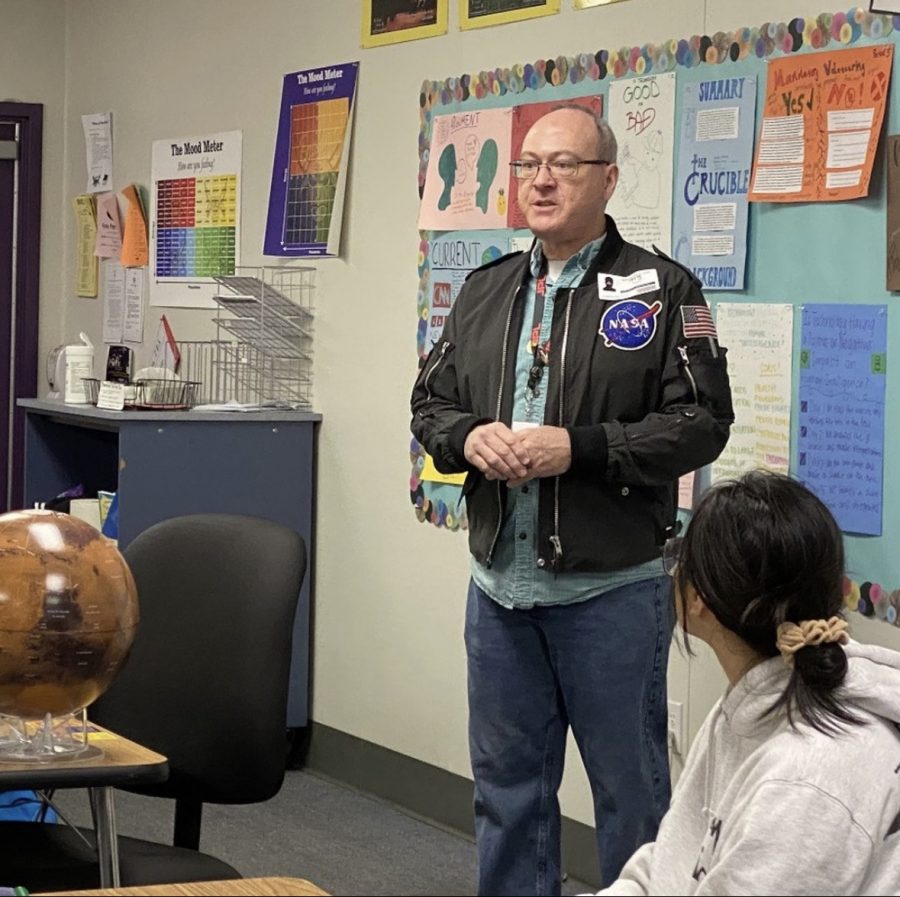Helping explore outer frontiers
From stories about NASA’s discoveries on Mars to the fascinating habitability capabilities of the planet, NASA ambassador Brian Cox enthralled Trina Dreyer’s class at Diamond Bar High School.
Cox explained the planet’s fascinating habitability as well as the difficulties to get there. Since the class was reading a book about the fourth planet of the solar system, Dreyer reached out to NASA to see if they could have a speaker to educate them more on the subject.
“I found it so fascinating,” Dreyer said. “I learned a lot from him. He’s such a dynamic speaker.”
During his visit, Cox discussed the weight of water on Mars. Astronauts in space struggle maintaining a steady source of water due to its density, making it difficult for it to be taken into space. In order for water to be deemed safe to consume, astronauts purify their own urine and use it as a liquid source. As a result, this urine solution is cleaner than the water we drink on Earth.
Cox spoke about Mars’ rovers and the difficulties of learning more about the planet, answering the students’ questions about his field of work. He explained concepts of human exploration in space, including the details behind sending rovers onto the planet.
“Even though we asked him kind of similar questions, he was so well-prepared and had different avenues of the directions he went in when he was answering them,” Dreyer said. “The students really enjoyed it, and I know they learned a lot from him.”
Cox also showed the class a 3D model of Mars, getting their information from the rovers. Even with the rovers, NASA cannot find lifeforms on Mars, because they are either too small or cannot be located with traditional methods.
“I asked him what the Milky Way was made from,” freshman Jason Peng said. “He said the Milky Way was made from a lot of things, like stars, some rocks, and dust. There were many things I did not know before that he came and talked about.”
The NASA ambassador spoke to the students on the gravity of Mars, where a humans’ mass on the planet is lighter than on Earth. In the future, Dreyer will reach out to Brian Cox again to talk to a fresh group of students, educating them on the various elements of the universe.
“I would love for him, when I have a different class of students, to come and talk to them, just because I know we got a lot out of it,” Dreyer said.
Your donation will support the student journalists of Diamond Bar High School. Your contribution will allow us to purchase equipment and cover our annual website hosting costs.









